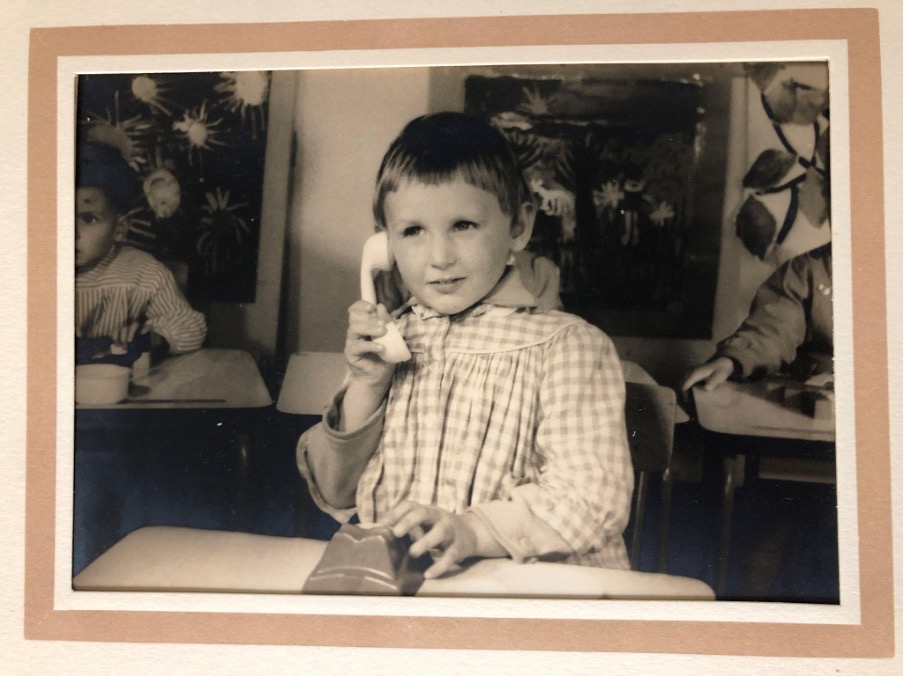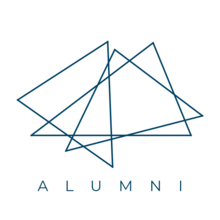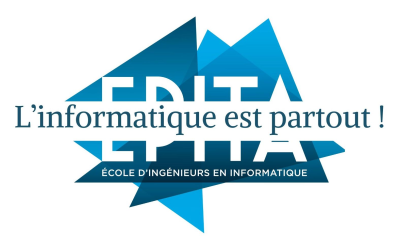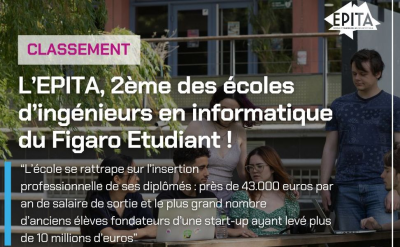News

30 years of TCOM : Interview Mr Alain STEPHAN

This is a new Text block. Change On the occasion of the 30th anniversary of the TCOM (Telecommunications and Networks) major, EPITA Alumni investigated the origins of this specialisation and its evolution. And who better to answer their questions than Mr. Alain STEPHAN, founder of the major and head of it for 30 years ?
Mr Stéphan, you graduated from Ecole Centrale Supélec in 1984 and have since worked in the telecommunications sector. Why did you personally choose to go into this field? Can you go back over your career in a few sentences?
AS: After attending the preparatory classes, I was curious to know how communications and telecommunications work. This field seemed mysterious to me, even a little magical! After obtaining my degree in advanced computer science at Centrale Supélec in 1984, I did my military service at the DGA Maîtrise de l'information (formerly CELAR de Bruz), a centre responsible, among other things, for transmission and telecommunications problems. So I was in the thick of it from the start, so I was predestined for a career in this field.
I then worked at Solvay and then at Crédit Agricole, still in the telecommunications field.
You are the head and founder of the TCOM speciality at EPITA, created in 1991. Could you put us in the context of the time?
AS: At the time when I was working at Solvay on routing rules in SNA environments, there was an EPITA trainee working with me. It was during his defence that I made friends with the person who was then in charge of the AI and expert systems major: Akli ADJAOUTE. It was he who informed me that the school was looking to open a new specialisation and I therefore proposed to create the Telecommunications major in 1991. This new specialisation complemented the two existing ones (IA and Security and Networks) and met the needs of the market at the time.
Once the TCOM major was created, what were the first choices for the programme?
AS: My experience in the field as head of telecommunications at Solvay and my user vision enabled me to build a programme that met the needs of the market by integrating skills and know-how that were difficult to find in the market. I therefore initially tackled three areas: data transmission, telecommunications and networks. These were complemented by the school's common curriculum.
How did you manage to find the teachers for the different courses?
AS: This is and always has been a bit tricky. It was necessary to find teachers who were both technical and pedagogical and who were willing to join me in the EPITA adventure, which has always been a school that is a bit different.
Over the years, I managed to build up the main framework and I filled in the gaps with more occasional speakers, less expert, but willing and good teachers. I found the profiles through meetings that I made in the context of my activity as a telecom manager where I rubbed shoulders with suppliers and service providers from ESNs.
What helped me was that EPITA gave me carte blanche. But even today, it is sometimes difficult to find people with rare technological skills. We try to be at the forefront of certain fields that I consider important. For example, we were the first to offer courses on blockchain, benchmarking and risk analysis.
What do you see as the major challenges in the world of telecommunications?
AS: For me, talking about challenges means analysing the risk and defining which of today's technologies will become widespread tomorrow. In the field of telecommunications, the software renewal cycle is quite sustained and the end user is not necessarily aware of this.
For example, today we are on WiFi 6 and we are going through 5G to be able to make calls, but behind the scenes WiFi 7 and 6G are already being prepared. This is where we have to make choices and anticipate.
Infrastructures are expensive and once they are deployed, it takes a certain amount of time to make them profitable, which I think slows down the technologies, otherwise we would have even faster cycles.
The Cloud with SaaS, IaaS and PaaS has accelerated these technology renewal cycles even more.
What are the major advantages that a TCOM student has with regard to these new challenges?
AS: First of all, there are not so many telecommunication schools. The Epitéen engineer is by nature a technical engineer, which differentiates us from other schools that orient their training more towards managerial professions. Epitéens are trained in development, which enables them to better understand new technologies such as SDx (Software Defined Everything).
What are you doing to ensure that the TCOM speciality responds to these challenges?
AS: Every year for the past 15 or 20 years we have been doing a multi-species project (called PMS), shared with the SRS (Systems, Networks and Security) major and the SIGL (Information Systems and Software Engineering) major, which consists of redesigning the information system of a fictitious company following a merger or an acquisition.
This project allows students to develop their business vision but also to identify obsolete technologies and to push them to look for those that are used today and that will last tomorrow. The aim is to develop their creativity and increase their autonomy in solving an unknown problem.
After more than 30 years of experience in the corporate world and in the telecommunications sector, what advice would you give to your former students who are still building their careers?
AS: I think that for people to be good, they have to make a success of their lives. But a successful life does not mean a successful professional life, it does not seem reasonable to me to reduce personal success to professional success.
I think, a bit like Lao Tzu, that like with Yin and Yang, an individual must find the right balance between his work, which he must love, and his personal life.
But the individual also has to find a job that he or she loves and is invested in.
I also think it's important to look after your reputation and your network, because the telecom world is not very big and you often come across the same people. Even when you leave a company, you have to do so with your feet firmly on the ground.
What are the main career directions of your students that you have seen following the major?
AS: The TCOM major leads to a very wide range of careers. You can work in telecoms but also in IoT, cloud, security, mobile networks and data centres. You even learn to be a project manager. This is an advantage because when you are young, you don't necessarily know what job you will like.
It seems more complicated to me, when you have never done networks and telecommunications, to go into this field of IT, than to have followed a TCOM course and go into other fields of activity.
What was the most surprising orientation among your alumni?
AS: I always found the ones whose job was to find and sell zero-day funny. But as TCOM deals with certain aspects of security, it is not so surprising that some students develop these skills which were originally reserved for the SRS speciality.
How do you see entrepreneurship following a course in the TCOM speciality? Do you have any alumni who have chosen this path?
AS: The answer seems obvious when you notice that the new head of the entrepreneurship specialisation is a former TCOM. *laugh*
More seriously, telecoms is a field in which projects require a certain amount of resources, so it may seem less obvious to be creative at low cost than in other areas of IT such as software.
But we can talk for example about a couple of alumni whose husband is SRS and whose wife is TCOM and who created the company Efficient IP, a provider of network security and automation solutions, specialised in DDI management, recognised at national, European and global level.
You must follow the career path of some of your former students, what makes you most proud of the success of an EPITA alumni?
AS: I always take great pleasure in seeing my former students in my professional life. Whether it's at suppliers, who sell me technological solutions, at operators or at trade shows. The latter is my favourite option, because when I was younger they always gave me goodies for my children and my cat.
When I meet them, I'm happy to see that they're successful, that they have a job they like and that everything is going well for them. And the students give it back to me, and it's thanks to a former student that I got the academic honours, I must be the only one at EPITA.
Will you be present on June 22 in Issy les Moulineaux in the restaurant l'ILE to celebrate the 30th anniversary of the major ?
AS : Of course. I hope to be the guest star alongside many other guests and especially former students. And then it's worth noting that some alumni are over 50 years old.
Last year, the oldest student at Epita graduated, who is now 58 years old and a TCOM.
I would also like to remind you that accompanying persons are welcome to attend the evening.

 16
16













1 Comment
Log in to post comment. Log in.